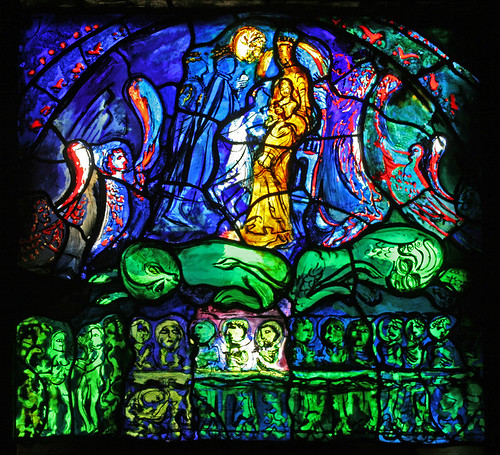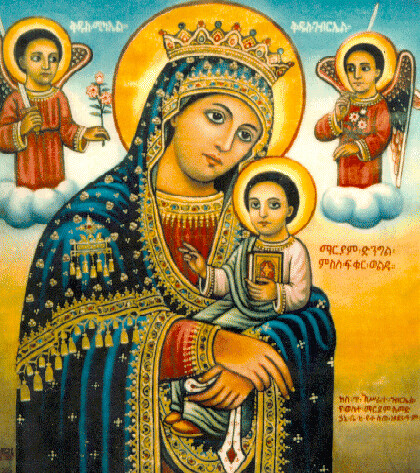We move into Ordinary Time and very immediately the focus is on vocation or
call and response. In the first reading, we get a glimpse of the vocation of
the prophet Samuel. The Gospel gives detailed descriptions of both the call and
response of the first apostles.
What does it mean to be called and how are we to respond?
Calling is not something which happens out of the blue. In fact, creation
may be said to be a response to God’s calling. He called and all reality, visible
and invisible, came to be. That could be considered the most basic response to
God’s calling. However, creation, especially Man, the pinnacle of God’s
creation, is imbued with freedom. With freedom, morality maps Man’s freedom to
respond to God or not.
Today, it would be good to reflect on how we can sometimes unknowingly
reject God and maybe understand what it means to respond.
Let us begin with a phenomenon known as lapsed Catholics. I am sure you
would have come across people who are classified as non-practising. It is by no
means a phenomenon restricted to Catholicism. All religions have their fair
share of it. I once had a conversation with a lapsed Catholic and the reason
given for being lapsed was that she was disgusted with how poorly people lived
their faith.
Disgust may be a strong word. Perhaps discouragement would be a better
description.
For example, each year we attract about 100 people for RCIA and give or
take the falling out, we might baptise about 80. Statistically, this parish may
have the most baptisms in the Archdiocese every year and it is a fact that might
just swell us with pride.
The call to discipleship frequently has a kind of trajectory
that starts off with euphoria. But, when the euphoria dies down, then the mundane
reality of Catholic life sets in. This is the time when the neophyte will
encounter real Catholics in whom they will observe a huge gap between what is
preached and what is practised. The result may be a faith-shattering dejection
and soon enough a cause for staying away from the Church. But this phenomenon
is not restricted to neophytes because many cradle Catholics do the same when
they cannot reconcile the difference between preaching and practising.
Thus far, I have described a reason for arriving at lapsed Catholicism.
To be fair, the reason is not illogical. In Confession, we examine our
conscience and ask if we have caused a scandal by our actions or omissions. The
etymology of the word scandal is an obstacle meaning that by our action or
inaction we have caused people to stumble in their faith. An example of
stumbling in faith is what you may have heard uttered ad nauseam—the Church is
full of hypocrites.
But, many people also do not realise that the reason for lapsing is
really a sorry excuse for the abdication of responsibility. What they are
saying is that they will be Catholics only if others behave. Perhaps, in
the context of God’s call and our response, let me rephrase the phenomenon of
lapsing as, “Hey God I don’t like you and I don’t want to be your friend. Why?
Because these people are bastards”. Crude as it may sound but it gets the point
across. What sort of response is that?
The call that God has for us, is a call that is personal to us. Everyone
is personally called into relationship with Christ the Son. Through the
Sacrament of Baptism each one is grafted onto the Vine, called Jesus Christ,
Our Lord and God. By our baptism, our response to Him is lived out both
personally and corporately. Personally because only the individual can respond
and corporately, because we realise that nobody can, on his own, graft
himself to the Vine. No one baptises himself. It always happens through the
agency of another which makes the grafting process corporate in its nature. The
nature of God’s call which is corporate is otherwise known as Church. Church is
not something extraneous to calling but it is essentially a component of that
call and also necessary for salvation. This is where we differ from Protestants
because for them, personal faith is often restricted to an “individual’s”
response. For Catholics, our personal response has a corporate structure
because salvation comes through the Church. It is through her that Christ’s
sacraments come to us. We cannot accept the head who is Christ and reject His Body
which is the Church.
This corporate nature of God’s call makes possible the baptism of
children because the faith of the parents may supply for the child’s lack of
faculty in making personal decision. Parents have a grave duty to form the
child to become responsible personally for the faith which they first received
from their parents. In a wider circle, it means also that we need to have a
greater sense of responsibility to nurture each other’s faith because by our
behaviour we may encourage or discourage our brothers and sisters.
Having said all that, it still remains that our response to God is
personal. The Sacrament of Confirmation is at times described as the moment
when the faith of our parents becomes our personal response. Some of our youths
seem to graduate from Sunday School and Confirmation to non-practice. It
explains but does not excuse an inability to take personal responsibility for
one’s response to God. To a certain extent, part of the blame will lie on the
parents IF they did not in the first place train the child for that moment of
responsibility. But, the failure to be personally responsible cannot be derived
from the corporate expression of God’s call, meaning that one cannot blame one’s
parents or others forever. You may blame someone sometime but not all the time
because after blame comes personal responsibility for a situation, no matter
how dire.
In summary, faith is a personal response to God but always lived
corporately through the Church. Maybe, at the beginning of the year, when
resolutions are baking out of the oven fresh and aplenty, we might resolve to deepen
our response to God, that is, to live our faith personally and independently of
other people’s practice or lack of, but always within the bosom of Holy Mother,
the Church.



